Shape Recognition Extra Challenge Geometry Worksheets for Ages 6-7
11 filtered results
-
From - To
Elevate your child's geometry skills with our "Shape Recognition Extra Challenge Geometry Worksheets for Ages 6-7." Designed for young learners, these engaging worksheets provide an advanced exploration of shapes, perfect for students ready for a challenge. Each exercise strengthens critical thinking and boosts confidence in identifying and analyzing various shapes. Featuring fun activities like matching, tracing, and comparing, our worksheets support a deeper understanding of geometry concepts. Ideal for home or classroom use, they offer a stimulating way to enhance shape recognition and foster a love for mathematics. Keep your kids ahead of the curve!
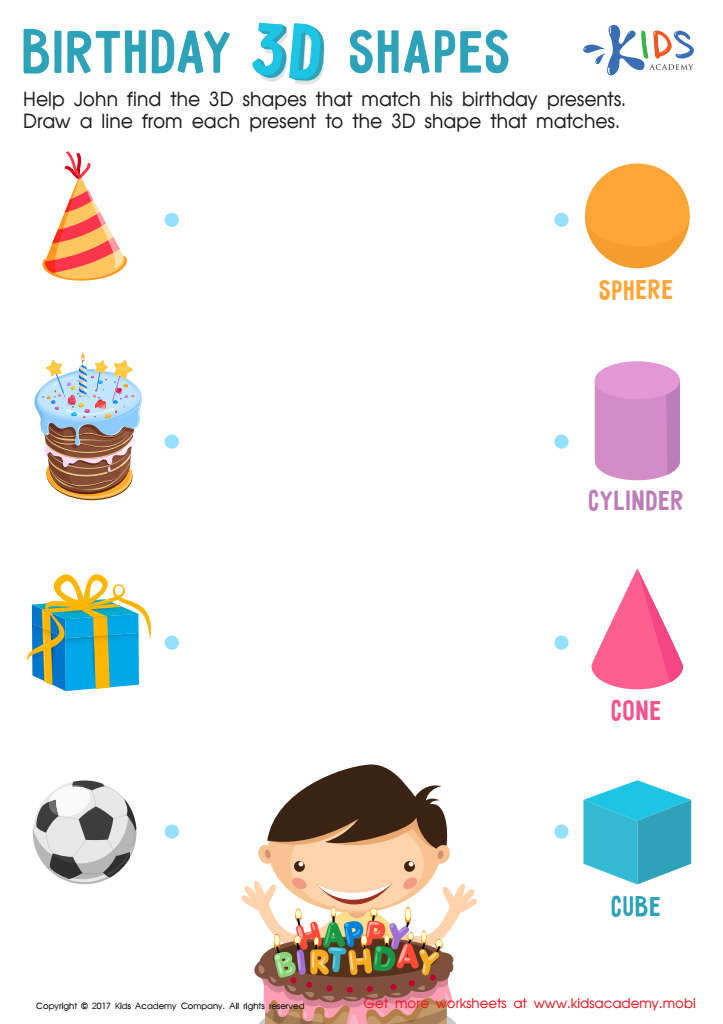

Birthday 3D Shapes Worksheet
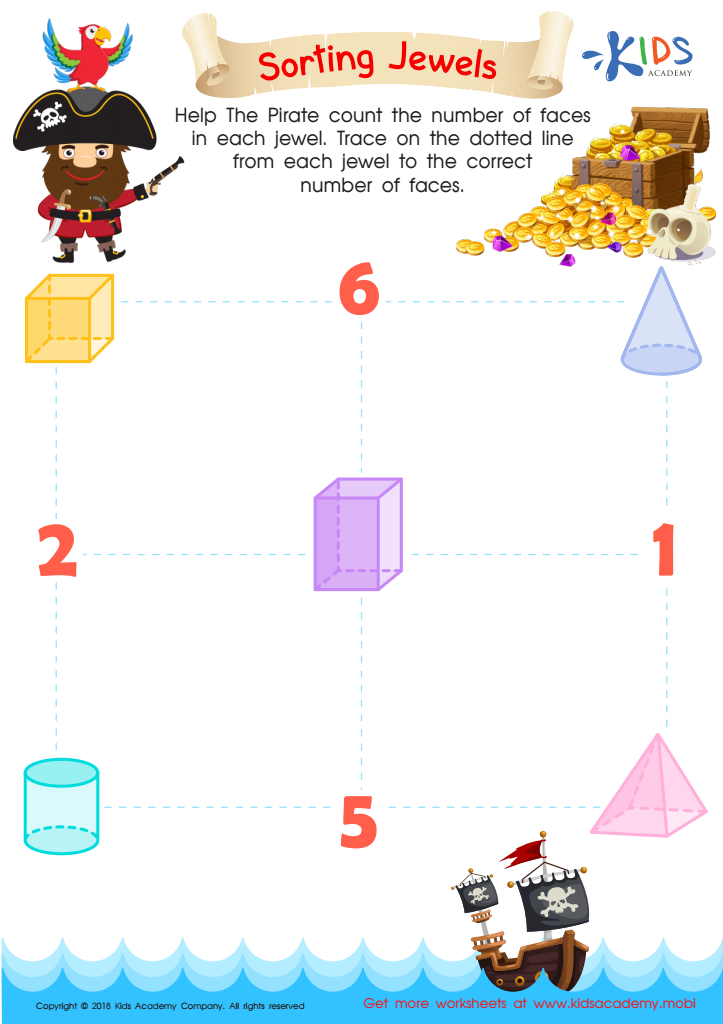

Sorting Jewels Worksheet
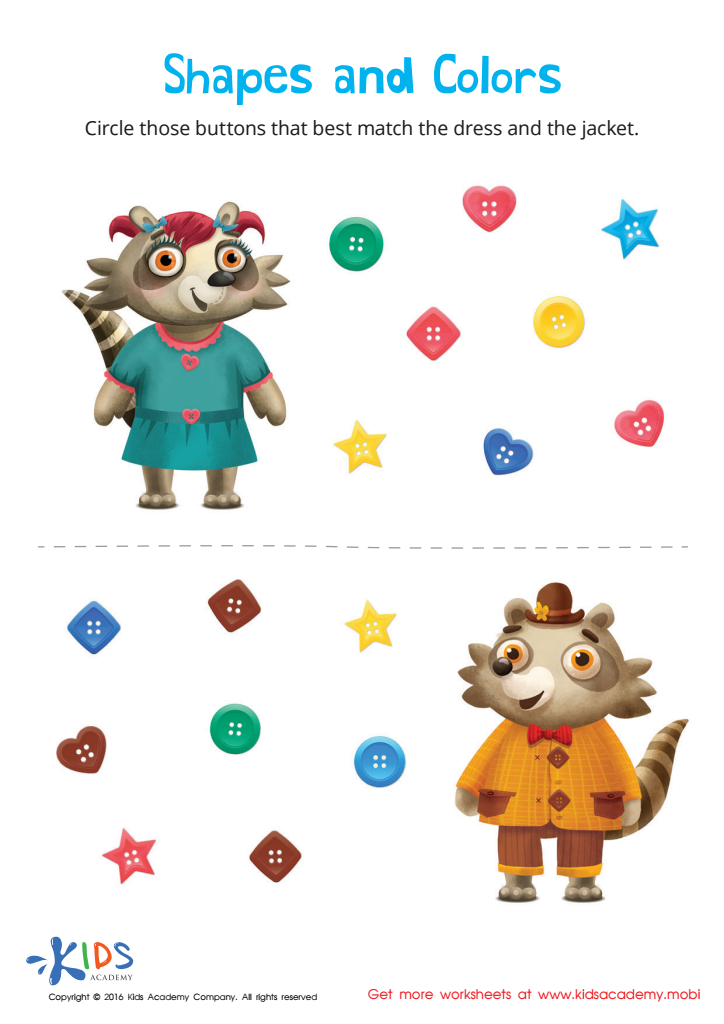

Matching: Shapes and Colors Worksheet
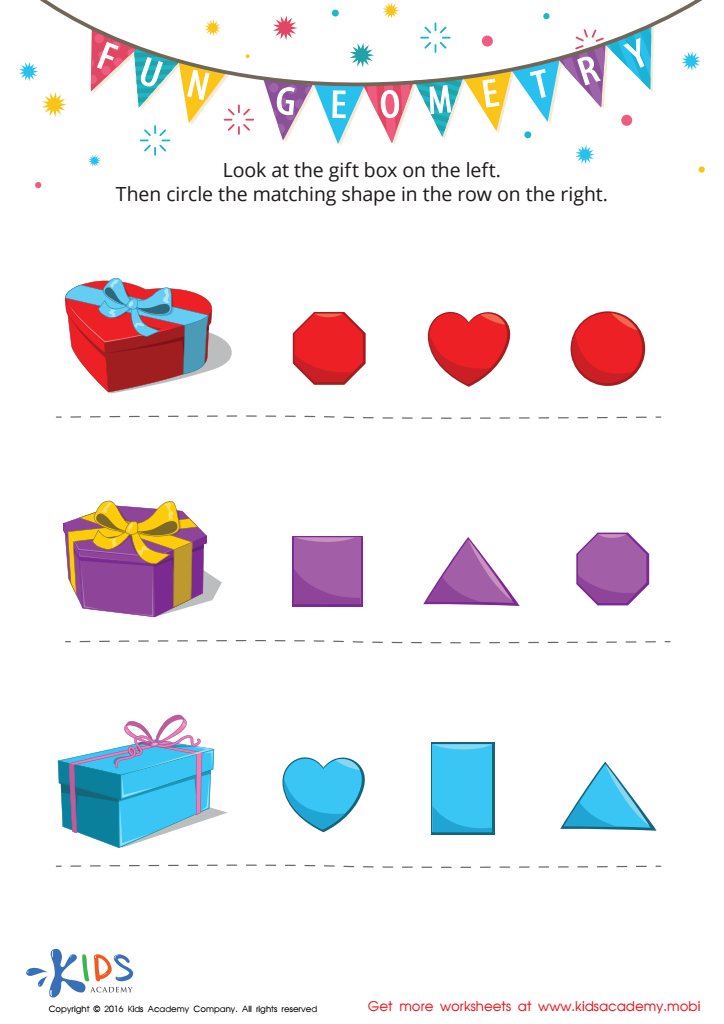

Fun Geometry Worksheet
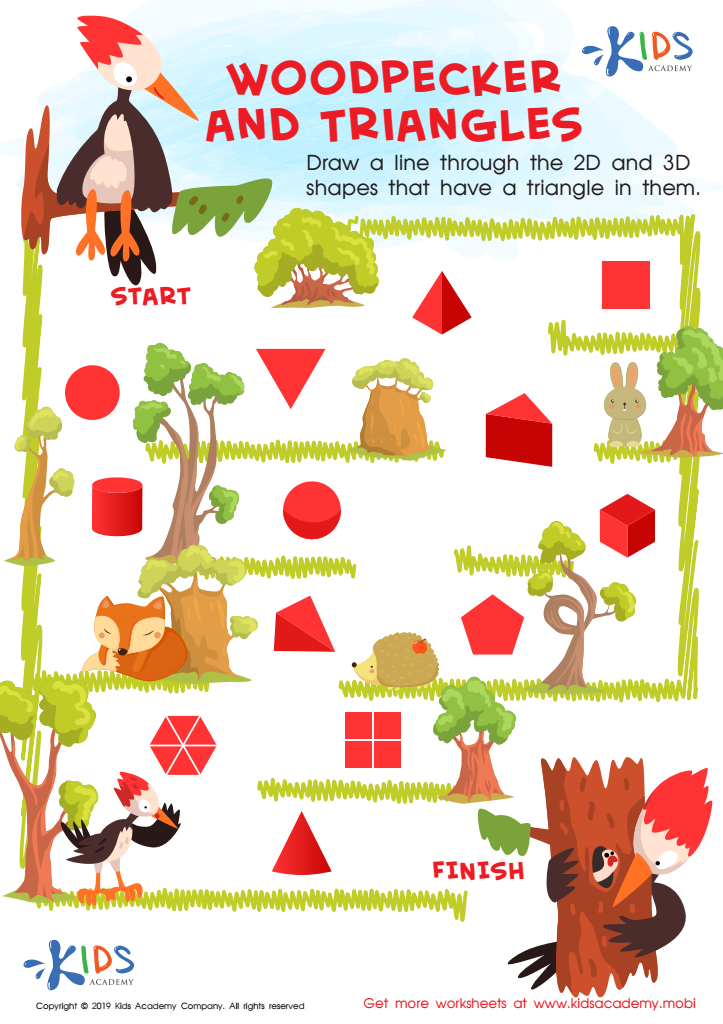

Woodpecker and Triangles Worksheet
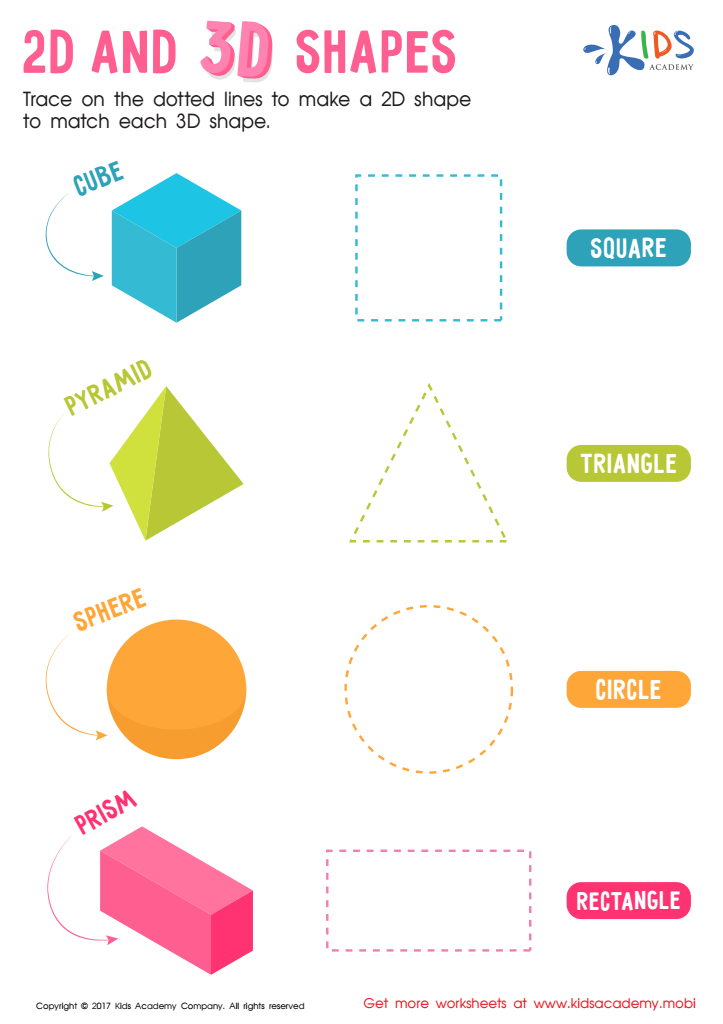

2D and 3D Shapes Worksheet
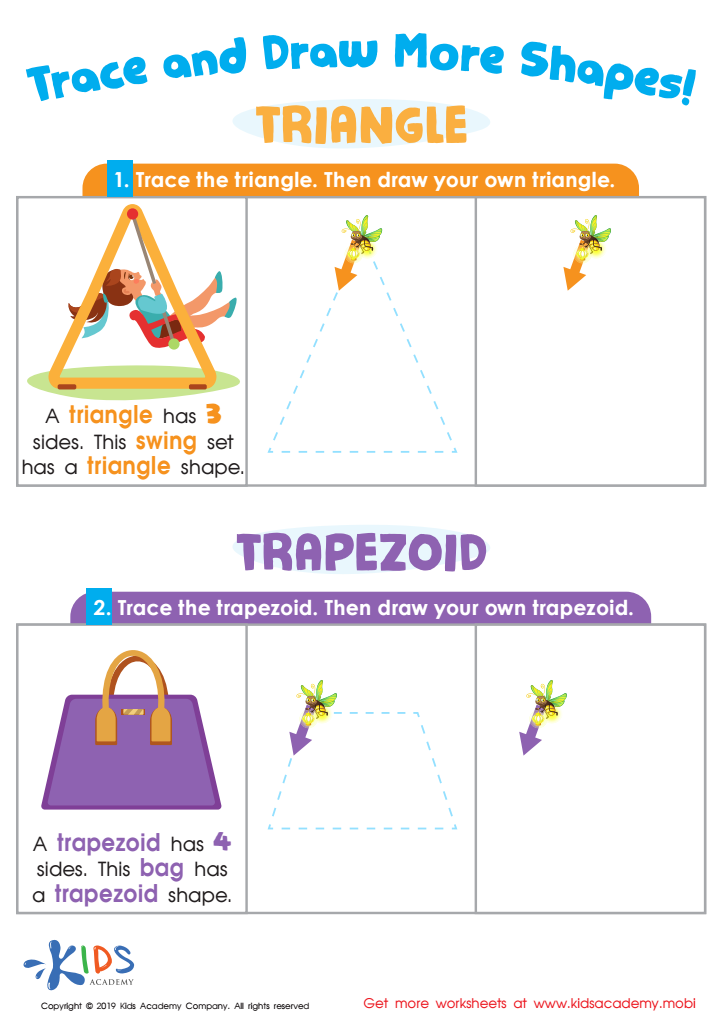

Trace and Draw More Shapes Worksheet
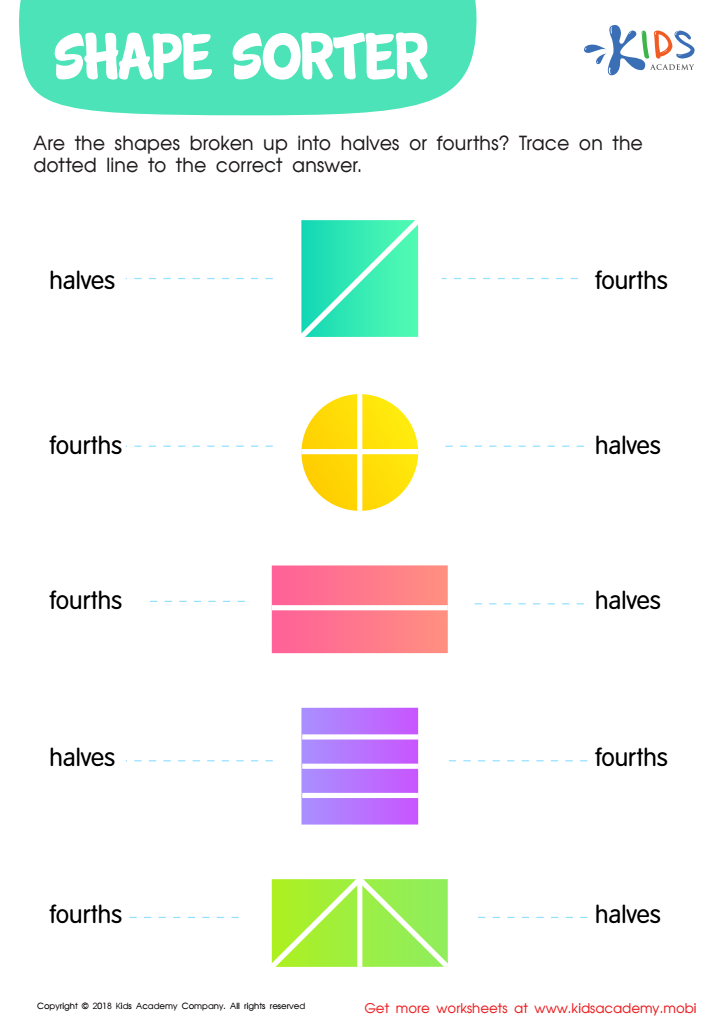

Shape Sorter Worksheet
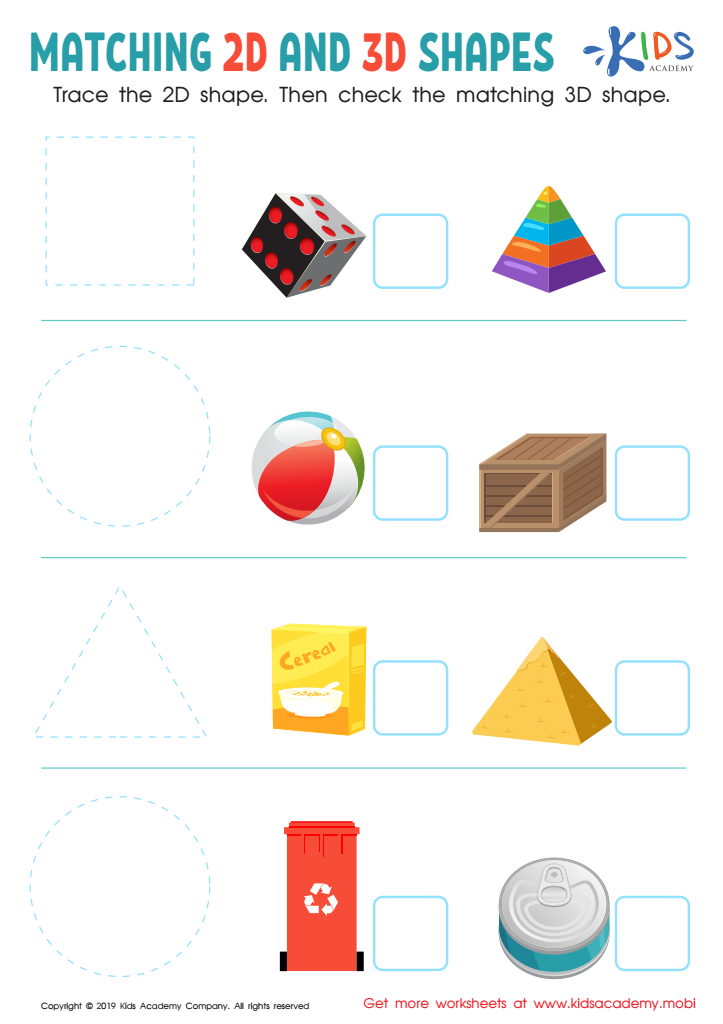

Matching 2D and 3D Shapes Worksheet
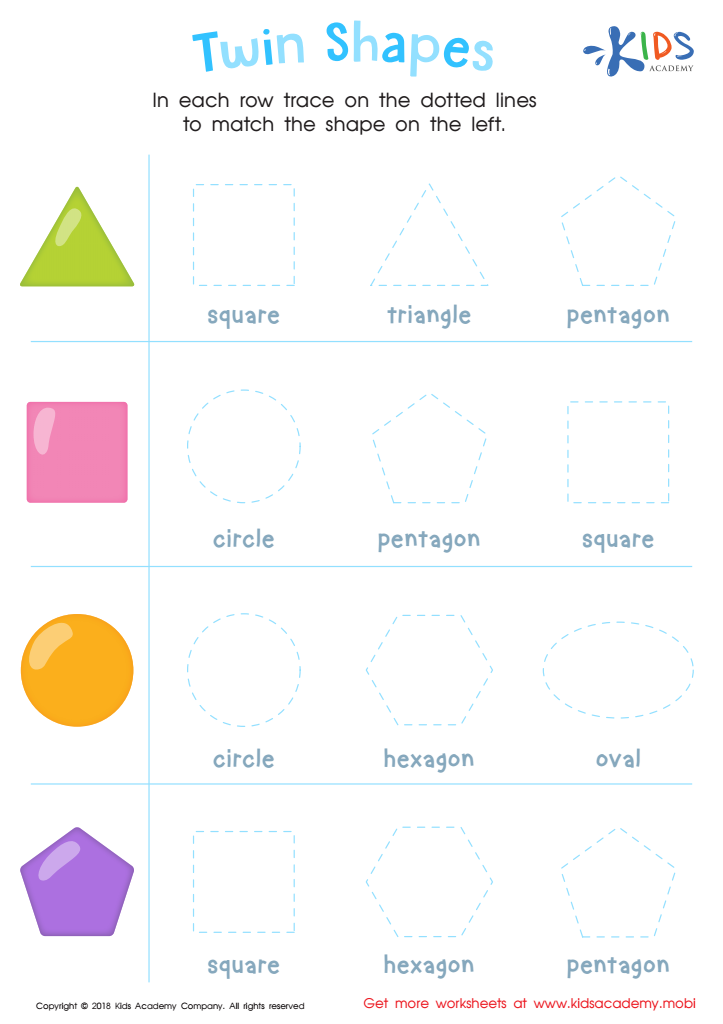

Twin Shapes Dot-to-Dot Worksheet
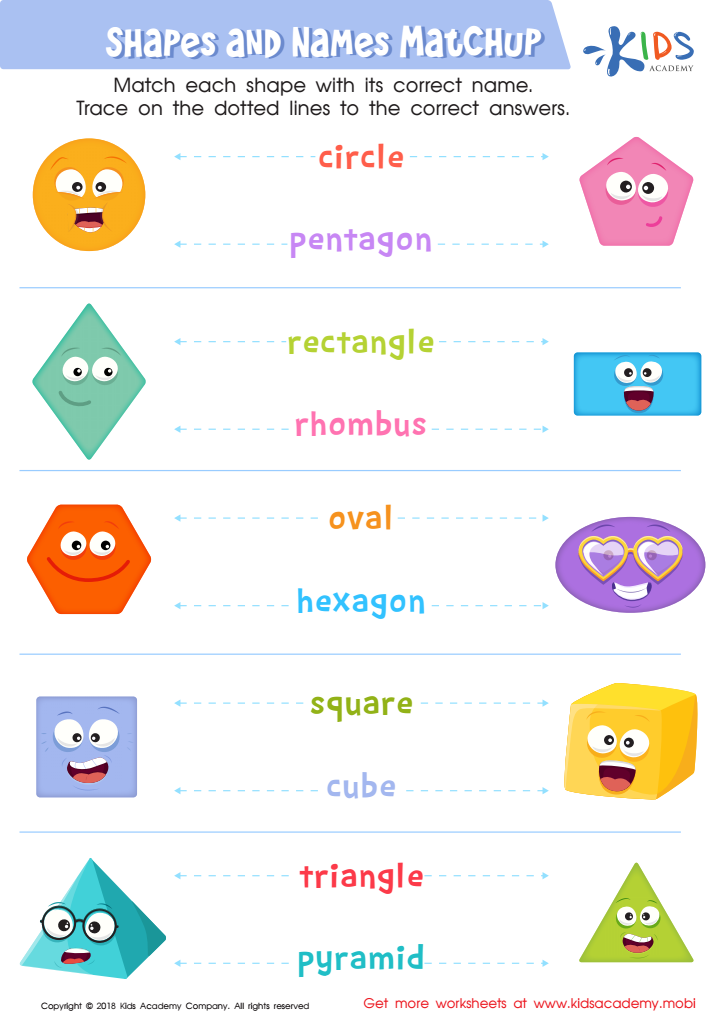

Shapes and Names Matchup Worksheet
Shape recognition is a fundamental skill in early childhood education, and it holds significant importance for several reasons. Fostering an understanding of shapes in children ages 6-7 helps build their spatial awareness, enhances cognitive development, and provides a foundation for future mathematical concepts. When parents or teachers introduce Shape Recognition Extra Challenge Geometry activities, they encourage children to engage in deeper thinking, problem-solving, and logical reasoning—skills essential for academic success.
Shape recognition also helps children to categorize and describe the world around them. This skill is linked to better understanding and learning about letters and numbers since many of these characters resemble geometric shapes. Activities focused on recognizing, comparing, and analyzing geometric shapes sharpen observational skills and boost visual discrimination, essential for reading and writing.
Moreover, mastering geometry concepts at an early age makes learning topics like symmetry, fractions, and geometry easier in later grades. Shapes can also spark creativity, enabling children to recognize patterns, artistic designs, and even contribute towards fine motor skills development through drawing and building shapes.
In essence, investing time in Shape Recognition Extra Challenge Geometry not only provides enjoyment but also equips young learners with critical skills that support higher academic achievements and effective problem-solving abilities in everyday life.
 Assign to My Students
Assign to My Students






























